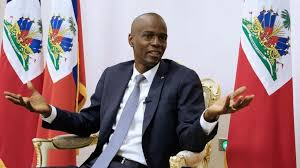
Powell and the Fed won’t be able to avoid talking about Trump forever
Federal Reserve Chair Jerome Powell dodged question after question at his Thursday news conference from a press corps eager to elicit the central bank leader’s thoughts about President-elect Donald Trump.
At some point, though, Fed policymakers, economists and analysts will need to account for what likely will be an ambitious economic — not to mention political — agenda from the firebrand Republican.
Trump took a dim view of the Powell Fed during his first term in office, calling policymakers “boneheads” and once compared Powell to a golfer who couldn’t putt. Powell, who was nominated by Trump in November 2017 and took office the following February, largely shrugged off the criticism then, and he again deflected Thursday.
“I’m not going to get into any of the political things here today, but thank you,” Powell said during the news conference after being asked at least half a dozen times about the Trump victory and its ramifications. Powell cut the session short around 3:12 p.m. ET, a few minutes earlier than normal following the round of politics-heavy questioning.
However, dealing with the ramifications of a Trump presidency will be almost unavoidable for the Fed leader.
Among the expected policy initiatives on the way are steep tax cuts, expansionary government spending and aggressive tariffs aimed at leveling a global playing field. Trump also has threatened mass deportations for undocumented immigrants, something that could alter the labor market landscape.
How the Trump-Powell relationship unfolds this time is unclear — Powell’s term as chair is up in February 2026 — but it is likely to add another wrinkle into a delicate balance the Fed is trying to navigate with monetary policy.
“They’re going to get themselves in a bind here, because the communication is going to get much more difficult, and there’s going to be a new administration coming in with its own way of how to view policy,” said Joseph LaVorgna, chief economist at SMBC Nikko Securities.
“It’s not clear to me that the Fed is going to have the same type of approach of what the [new] administration is doing, and that I think could set up a lot more tension,” he added.
LaVorgna has a unique perspective on the situation, having served as chief economist for the National Economic Council under Trump. He could be headed back to Washington in 2025 for another stint in the White House
All comments
Comment not found

